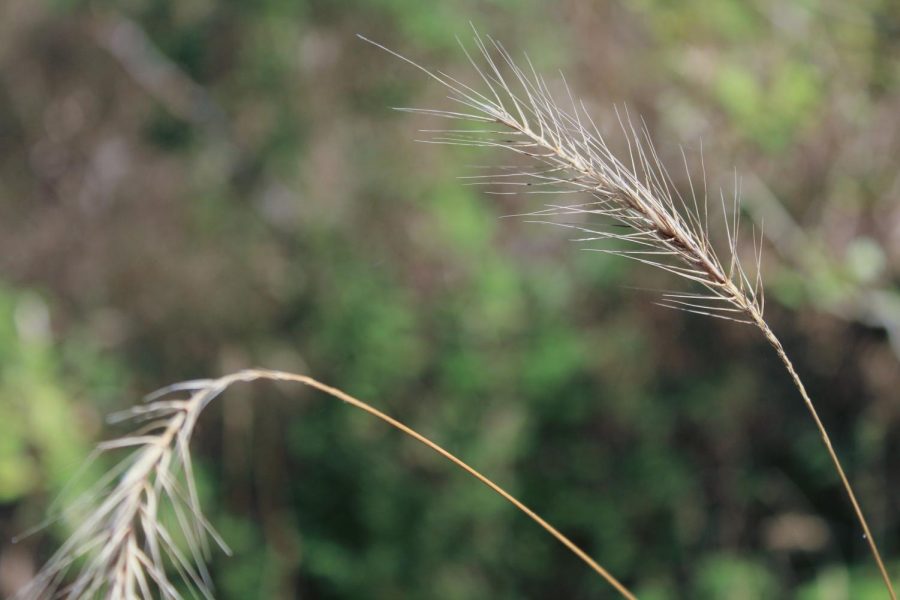Biology department plans to remove invasive species from biological preserves
Phragmites, a non-native species of grass, will soon be removed from OU’s Biological Preserves.
Plans to remove the invasive Phragmites species from Oakland University’s biological preserves will go into effect this week.
Phragmites australis is an aggressive non-native species of grass, similar to the common reed, that grows in wetland marshes. They are extremely tall, brown stalks of grass with tufts at the tops of the reeds.
Phragmites have been a problem for OU’s biological preserves for decades, and they out-compete the native species of plants in the marshes, like cattails, for resources. If left unchecked, Phragmites will overtake the entire ecosystem and eliminate all other species.
“If you drive on Pioneer Drive, there’s a cattail marsh right there, and when I started here 10 years ago it had a little bit of phragmites around the periphery of it,” said Dr. Scott Tiegs, biology professor and principal investigator of OU’s aquatic ecology lab. “Every year, it has encroached toward the center. Now it’s probably 80% Phragmites and a relatively small fraction of cattails.”
Phragmites pose a threat not only to the other native plants in the wetlands, but to the animals that rely on those plants for food and shelter. The overtaking of Phragmites has the potential to upset the balance of the entire ecosystem in the preserves.
Tiegs, who specializes in ecology, proposed the removal this June. Before the removal was allowed to occur, authorization had to be granted to the project by OU Facilities Management and OU administration.
“Everyone was receptive to the idea, they think it’s a good community engagement project,” Dr. Doug Wendell, chair of the biology department, said.
After the project was approved by OU Facilities Management, Tiegs got into contact with Six Rivers Land Conservancy. Six Rivers is a nonprofit organization that helps to conserve and protect natural areas. They are partnered with the Oakland County Cooperative Invasive Species Management Area (CISMA), who handles projects pertaining to invasive species in the area.
The CISMA group received funding for this project through the Michigan government via the Michigan Invasive Species Grant Program, as Phragmites is considered one of the group’s “priority species” to manage.
“We have identified [priority species] as having the most risk and impact to the areas they do spread to, and some of our priority species include phragmites among other things,” Oakland County CISMA Director Erica Clites said. “We have some funding set aside to do treatment of Phragmites to show people that these invasive species can be controlled and treated.”
Oakland County CISMA will be assisting in the removal of the Phragmites from the preserves. There are many ways to remove this invasive species, including mowing, burning and herbicide. OU and Oakland County CISMA plan to use a combination of both mowing and a broad spectrum herbicide to ensure the effectiveness of the removal.
Despite the use of an herbicide, there will not be any lasting effects to the majority of the other plants in the area due to the application technique.
“We have guys out there who are applying it by hand, very precisely to the locations of the Phragmites,” Tiegs said.
The goal of this project is to manage the growth of the Phragmites, not eradicate it. Tiegs hopes to see an increase in biodiversity after the project is finished.
As with any weed, there is a chance that Phragmites will return to the area after removal. The biology department plans to have students participate in monitoring the results in the wetlands as part of course curriculum in the future.
“We’ve got 80 acres on campus of natural areas that we use for a lot of our teaching, research, etc., and it’s nice when we can do ecological restoration to maintain the integrity of these natural areas that we have,” Tiegs said.






